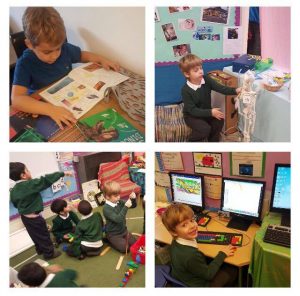I had a chance to come across a TED talk by Sal Khan on the Mastery-Based Learning. I find his ideas interesting and useful not only to familiarize with but also apply them in own teaching. Therefore, I decided to share them with the fellow academics at ÅÅ.
Sal Khan talks about two key and leverage ideas of learning; it is an idea of mastery and an idea of mind set. For instance, there are so a lot of students that have gaps in math and by the time they start to attend algebra classes, they are not able to cope with a course due to the previously unlearned theories and practices. At that point, some have so many gaps that they start to think that they just simply do not have the math gene. In some educational institutions, students are able to get additional help and supporting learning sources to learn and fill out those missing gaps and master those concepts. Then students realize that after all they are able to understand and master math. This is how it works with many things in life. For instance, if you would like to become a martial art master, first you will start with a white belt and once you mastered it, you will start practicing for achieving a yellow belt and so forth. But this is not a way a traditional academic model is structured that most of us grew up in. In a traditional model, we usually group kids in accordance to their age and perceived ability and we shepherd them all together in the same phase. During the classes, teachers have lecture and homework type of learning that will continue for couple of weeks and then students have to write an exam. Exams identify their gaps in learning but teacher would not focus on it, instead a new topic will be introduced; students that have had gaps in the basic things are now pushed to more advanced things. Eventually students hit the wall and not because particular subject is difficult or a student is not bright but because by that time gaps start to become bigger and student starts to disengage. This is an absurding situation because the learning process is broken. Instead of taking a time to identify the very first gaps, we, as teachers, build on them. So the idea of mastery learning is to do exact opposite.
In a mastery based learning, focus is put on when and how long student has to work on something and make sure that they actually master a material. And this will not only help to learn the exponents better but reinforce the right set mind muscles. It makes them realize that if you fail a certain exam, it does not mean that you have a failure gene in you, it means that you should keep working on it and get support from other sources.
Mastery based learning have been studied and approved as an effective way of learning but has not been widely incorporated in education due to its logistical difficulties. For example, teachers would have to provide different sheets for students and make studies personalized. But as Sal explains, there are many sources and institutions that support this type of learning. When this happens, in the classroom instead of focusing on a lecture, students could interact with each other, focus on a dialogue over mastering and expanding the knowledge on the subject. Basically, the gaps they had would be filled, which would bring up a totally new society filled with aspirations and creativity. Social imperative would change where almost all could be entrepreneurs, artists as well as researchers. This is not an utopia, if we let people tap their potential by mastering concepts at their own phase.


